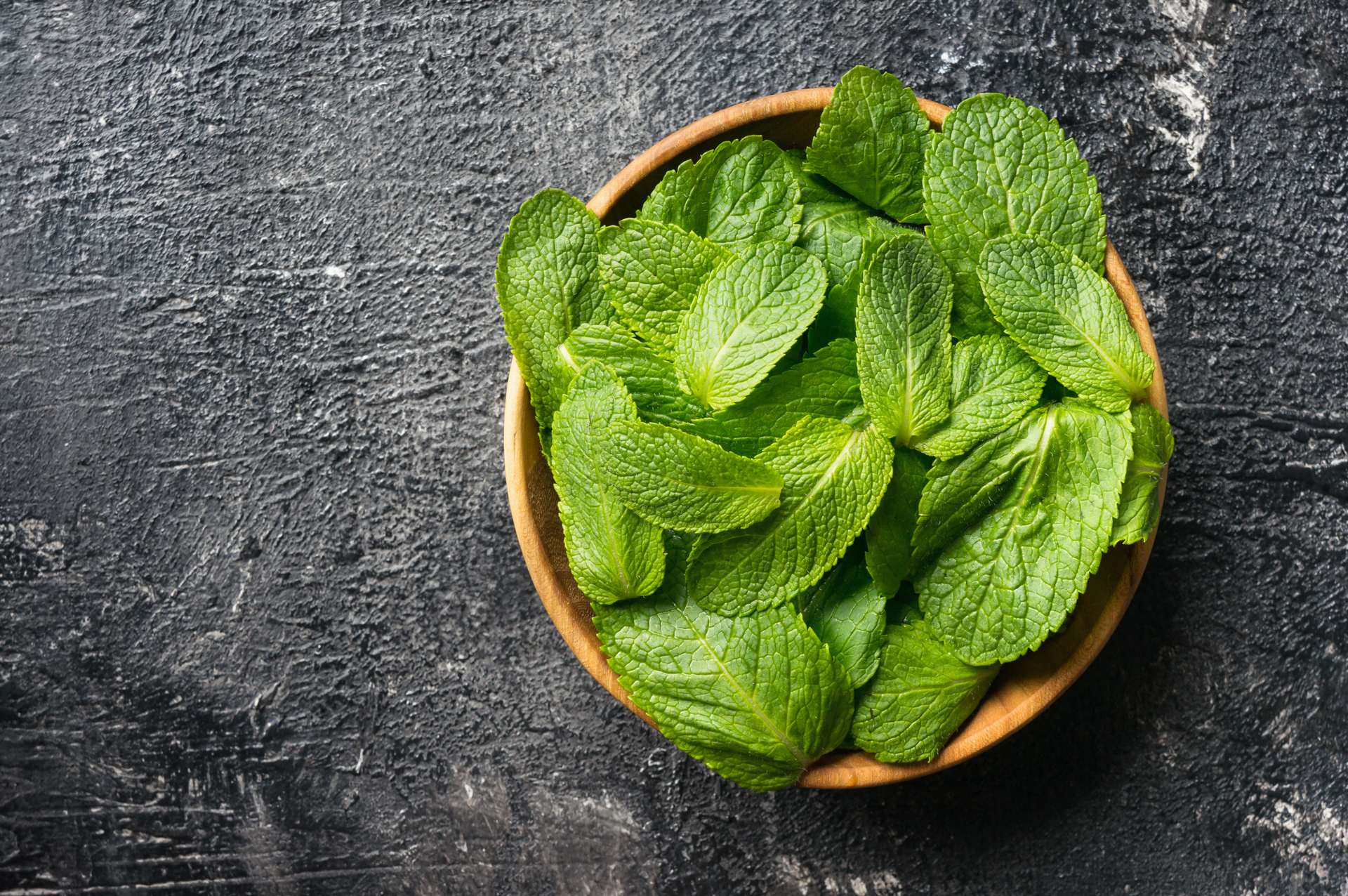

FAQs
What To Take For Flatulence
Modified: September 23, 2023
Get relief from flatulence with these general questions answered. Find out what to take for flatulence and how to prevent it.
(Many of the links in this article redirect to a specific reviewed product. Your purchase of these products through affiliate links helps to generate commission for Under-tec.com, at no extra cost. Learn more)
Table of Contents
Introduction
Flatulence, commonly known as farting, is a natural bodily function that everyone experiences at some point. It is caused by the buildup of gas in the digestive system, which is released through the rectum. While passing gas is a normal process, excessive or foul-smelling flatulence can cause discomfort and embarrassment.
Understanding the causes of flatulence is crucial in finding ways to reduce it. This article will explore the most common causes of flatulence and provide practical tips and remedies for managing it. Whether you’re tired of dealing with the constant bloating and gassy episodes or simply looking for ways to prevent flatulence, this guide has got you covered.
One of the main culprits behind flatulence is the foods we eat. Certain foods are notorious for producing excessive gas in the digestive system. By making dietary changes and avoiding trigger foods, it is possible to significantly reduce flatulence frequency and intensity.
In addition to dietary changes, herbal remedies and over-the-counter medications can also provide relief from flatulence. These treatments can help alleviate the discomfort caused by excessive gas and promote smoother digestion.
However, it is important to understand that flatulence can be a symptom of an underlying health condition. If you are experiencing persistent or severe flatulence, it is advisable to consult a healthcare professional for a proper diagnosis and comprehensive treatment plan.
Now, let’s delve into the various causes of flatulence and explore the dietary changes, herbal remedies, and medications that can help in managing it effectively.
Understanding Flatulence
Flatulence is a natural bodily function that occurs when the digestive system releases gas through the rectum. It is a normal part of the digestive process and is typically harmless. However, excessive flatulence can cause discomfort, bloating, and embarrassment. To effectively manage flatulence, it is essential to understand its causes and how it affects the body.
The human digestive system is responsible for breaking down the food we consume into nutrients that can be absorbed by the body. During digestion, gases such as carbon dioxide, nitrogen, hydrogen, and sometimes methane can accumulate in the intestines. These gases can be produced by the digestive process itself or by the fermentation of undigested food by gut bacteria. When the amount of gas in the intestines exceeds a certain threshold, it needs to be expelled from the body, leading to flatulence.
It is important to note that passing gas is a normal bodily function, and the average person passes gas anywhere from 13-21 times a day. The frequency and intensity of flatulence can vary depending on various factors, including diet, lifestyle, and overall health.
Flatulence can present itself in different ways. It can range from mild and odorless to more intense and accompanied by a foul smell. The odor of flatulence is primarily caused by sulfur-containing compounds produced by bacteria in the gastrointestinal tract. Factors such as dietary choices, bacterial composition in the gut, and the speed of digestion can all influence the smell of flatulence.
In addition to discomfort, excessive flatulence can be an embarrassing social problem for many individuals. It can affect one’s confidence, particularly in public or social settings. Therefore, it is essential to find ways to manage and reduce flatulence in order to improve overall well-being and quality of life.
Now that we have a basic understanding of flatulence, let’s explore the various causes that can contribute to excessive gas buildup in the digestive system and exacerbate flatulence symptoms.
Causes of Flatulence
Flatulence can have several causes, ranging from dietary factors to underlying health conditions. Understanding the root causes of excessive gas buildup in the digestive system can help in finding effective strategies to manage and reduce flatulence. Let’s explore some of the most common causes:
- Diet: The foods we eat can play a significant role in causing flatulence. Certain types of carbohydrates, such as beans, lentils, broccoli, cabbage, and onions, contain complex sugars that are not easily digested by the body. As a result, these sugars reach the large intestine undigested, where they are fermented by bacteria, leading to the production of gas. Carbonated drinks and high-fat foods can also contribute to flatulence.
- Swallowing air: Sometimes, the excess gas in the digestive system is a result of swallowing air while eating or drinking. This can happen when we eat quickly, chew gum, smoke, or even talk while eating. Carbonated beverages can also introduce additional air into the digestive system.
- Gastrointestinal disorders: Certain gastrointestinal disorders can contribute to excessive flatulence. Conditions such as irritable bowel syndrome (IBS), inflammatory bowel disease (IBD), gastroesophageal reflux disease (GERD), and food intolerances can cause increased gas production and impaired digestion, leading to flatulence.
- Gut bacteria imbalance: The human gut is home to millions of bacteria that play a crucial role in digestion. However, an imbalance in the gut bacteria, known as dysbiosis, can lead to excessive gas production. Imbalances can be caused by factors like antibiotic use, poor diet, stress, and certain medical conditions.
- Medications: Some medications can contribute to flatulence as a side effect. Antibiotics, nonsteroidal anti-inflammatory drugs (NSAIDs), and certain supplements can disrupt the balance of gut bacteria or affect digestion, resulting in increased gas production.
It’s important to note that these causes can vary from person to person, and what triggers flatulence in one individual may not affect another. Identifying and understanding the root cause of flatulence can help in developing an effective treatment plan tailored to each individual’s needs. In the next section, we will explore dietary changes that can help reduce flatulence and improve digestive health.
Dietary Changes for Reducing Flatulence
Making certain dietary changes can be an effective strategy for managing and reducing flatulence. By avoiding trigger foods and incorporating gas-reducing choices into your meals, you can help alleviate the discomfort caused by excessive gas. Here are some dietary tips to consider:
- Avoid Gas-Producing Foods: Certain foods are notorious for causing excessive gas production. These include beans, lentils, broccoli, cabbage, onions, carbonated drinks, and high-fat foods. Avoiding or minimizing the consumption of these foods can help reduce flatulence.
- Choose Low-FODMAP Foods: FODMAPs (fermentable oligosaccharides, disaccharides, monosaccharides, and polyols) are a group of carbohydrates that can ferment in the gut, leading to gas production and bloating. Following a low-FODMAP diet, under the guidance of a healthcare professional, can be beneficial for individuals with certain digestive disorders like IBS.
- Enhance Digestive Health: Including foods that promote digestion and support gut health can help reduce flatulence. Opt for high-fiber foods like fruits, vegetables, and whole grains, which provide essential nutrients while promoting regular bowel movements. Probiotic-rich foods such as yogurt, kefir, sauerkraut, and kimchi can also help restore a healthy balance of gut bacteria.
- Eat Smaller, More Frequent Meals: Overeating can put stress on the digestive system and lead to increased gas production. Instead of large meals, try consuming smaller, more frequent meals throughout the day. This can help the digestive system better handle food and reduce the likelihood of excessive gas buildup.
- Chew Thoroughly: Proper chewing is essential for optimal digestion. When we eat quickly or don’t chew our food thoroughly, we are more likely to swallow air, contributing to flatulence. Take the time to chew your food properly and savor each bite.
It’s important to note that dietary changes may not provide immediate relief from flatulence and can vary from person to person. It may be helpful to keep a food diary to identify trigger foods and patterns of excessive gas production. Consulting with a registered dietitian or healthcare professional can also provide personalized guidance on dietary modifications for reducing flatulence.
Now that we have explored dietary changes, let’s move on to the specific types of foods to include in your diet that can help reduce flatulence.
Foods to Include in Your Diet
When it comes to managing and reducing flatulence, incorporating certain foods into your diet can be beneficial. These foods can help promote healthy digestion, reduce gas production, and alleviate the discomfort associated with excessive flatulence. Here are some options to consider:
- Ginger: Ginger has long been recognized for its digestive properties. It helps stimulate the digestive system, reduce bloating, and relieve gas. Add grated ginger to your meals or enjoy a cup of ginger tea after meals.
- Pineapple: Pineapple contains an enzyme called bromelain, which facilitates digestion and helps break down proteins. Adding pineapple to your diet can aid in smoother digestion, reducing the likelihood of excessive gas production.
- Papaya: Papaya is rich in papain, an enzyme that aids in the digestion of proteins. This tropical fruit can help prevent indigestion and reduce flatulence. Enjoy fresh papaya as a snack or add it to smoothies.
- Peppermint: Peppermint has been used for centuries to help soothe digestive discomfort. It can help relax the muscles of the gastrointestinal tract, reducing gas and bloating. Sip on peppermint tea or add fresh mint leaves to your meals.
- Parsley: Parsley is not just a garnish; it also has digestive benefits. It contains compounds that aid in digestion, reduce bloating, and help expel gas from the body. Add fresh parsley to salads, soups, or as a garnish to your meals.
- Probiotic Foods: Including probiotic-rich foods in your diet can help maintain a healthy balance of gut bacteria, reducing the risk of excessive gas production. Yogurt, kefir, sauerkraut, kimchi, and kombucha are all excellent sources of probiotics.
- Fennel: Fennel has been traditionally used as a digestive aid. It helps relax the muscles of the gastrointestinal tract and reduce bloating and gas. You can enjoy fennel seeds after a meal or incorporate fresh fennel into your salads or stir-fries.
- Oats: Oats are a high-fiber food that promotes healthy digestion and regular bowel movements. Consuming oats can help prevent constipation, which can contribute to gas buildup. Start your day with a bowl of oatmeal or add oats to your smoothies or baking recipes.
Remember, while these foods may be beneficial in reducing flatulence, individual responses can vary. It is important to listen to your body and make dietary choices that work best for you. Experiment with incorporating these foods into your diet and observe how your body responds.
In the next section, we will discuss the foods to avoid in order to minimize flatulence and improve digestive health.
Foods to Avoid
When aiming to reduce flatulence, it is important to be aware of foods that are known to be common culprits for excessive gas production. By avoiding or minimizing the intake of these foods, you can help alleviate flatulence symptoms. Here are some foods to avoid:
- Beans and Lentils: Beans and lentils are notorious for causing gas and bloating due to their high fiber content and complex sugars. While these are nutritious foods, they can be challenging to digest for some individuals. If you experience excessive flatulence after consuming them, consider reducing your intake or trying different cooking methods, such as soaking or fermenting.
- Cruciferous Vegetables: Vegetables like broccoli, cabbage, cauliflower, and Brussels sprouts contain raffinose, a complex sugar that can be difficult to digest. This can lead to gas production and bloating. Cook these vegetables thoroughly or try steaming them to make them easier to digest.
- Onions and Garlic: Onions and garlic contain sulfur compounds that can cause flatulence and leave a strong odor. While they add flavor to many dishes, reducing or eliminating them from your meals may help reduce gas production.
- Carbonated Drinks: Carbonated drinks, such as soda and sparkling water, can introduce air into the digestive system, leading to increased gas production. Avoiding or minimizing the consumption of these drinks can help reduce flatulence.
- Fatty Foods: High-fat foods take longer to digest and can slow down the digestion process, leading to increased gas production. Fried foods, fatty meats, and rich desserts should be consumed in moderation to prevent excessive flatulence.
- Sweeteners: Artificial sweeteners, such as sorbitol, mannitol, and xylitol, can be difficult to digest for some individuals, leading to increased gas production. Check food labels for these sweeteners and consider choosing natural alternatives like stevia or small amounts of honey or maple syrup.
- Spicy Foods: Spicy foods can irritate the digestive system and cause excessive gas production in some individuals. If you notice this pattern, consider reducing your intake of spicy foods or opting for milder versions.
- Dairy Products: For individuals with lactose intolerance or dairy sensitivities, consuming dairy products can lead to gastrointestinal discomfort, including flatulence. Consider reducing or eliminating dairy from your diet or opting for lactose-free alternatives.
Remember, the impact of these foods on flatulence can vary from person to person. It is essential to pay attention to your body’s reactions and identify the specific foods that trigger excessive gas production for you. Keeping a food diary can be helpful in pinpointing the culprit foods.
Now that we have explored the foods to avoid, let’s move on to discussing herbal remedies and over-the-counter medications that can provide relief from flatulence.
Herbal Remedies for Flatulence
Herbal remedies have been used for centuries to promote healthy digestion and alleviate symptoms of flatulence. These natural remedies can help reduce gas production, ease bloating, and soothe the digestive system. Here are some herbal remedies that you can consider:
- Peppermint: Peppermint has been widely studied for its digestive benefits. It helps relax the muscles of the gastrointestinal tract, which can reduce gas and bloating. Peppermint tea or peppermint oil capsules are commonly used for relieving flatulence symptoms. However, it is important to note that peppermint oil capsules should be taken with caution and under the guidance of a healthcare professional, as they can interact with certain medications and may not be suitable for everyone.
- Chamomile: Chamomile is known for its calming properties, and it can also help soothe the digestive system. Chamomile tea can help ease flatulence and relieve digestive discomfort. Sip on a warm cup of chamomile tea after meals to aid digestion.
- Fennel Seeds: Fennel seeds have been used for centuries as a natural remedy for flatulence. Chewing on fennel seeds or drinking fennel tea can help relax the muscles of the gastrointestinal tract and reduce gas. Additionally, fennel seeds can promote better digestion and help relieve bloating.
- Ginger: Ginger is well-known for its digestive benefits. It can help stimulate digestion, reduce bloating, and relieve flatulence. Adding grated ginger to meals, drinking ginger tea, or taking ginger supplements can aid in digestive comfort.
- Activated Charcoal: Activated charcoal is a natural substance that can help absorb excess gas in the digestive system. It is available in supplement form and can be taken before or after meals to help reduce flatulence symptoms. However, it is important to follow the recommended dosage and consult with a healthcare professional before using activated charcoal.
- Caraway Seeds: Caraway seeds have been traditionally used to promote digestion and reduce flatulence. Chewing on caraway seeds or incorporating them into your meals can help alleviate gastrointestinal discomfort and reduce gas production.
While herbal remedies can provide relief for some individuals, it is important to note that their effectiveness can vary. Additionally, certain herbal remedies may interact with medications or have contraindications for certain individuals. It is always advisable to consult with a healthcare professional or herbalist before incorporating herbal remedies into your routine, especially if you have any underlying health conditions or are taking medications.
In the next section, we will discuss over-the-counter medications that can be used to alleviate flatulence symptoms.
Over-the-Counter Medications for Flatulence
If dietary changes and herbal remedies have not provided sufficient relief from flatulence symptoms, over-the-counter medications can be an option to consider. These medications are designed to help alleviate gas and bloating in the digestive system. Here are some commonly used over-the-counter medications for flatulence:
- Simethicone: Simethicone is an active ingredient found in many over-the-counter medications for flatulence. It works by breaking down large gas bubbles into smaller ones, making it easier for the body to expel them. Simethicone is available in various forms such as tablets, capsules, and chewable tablets, and it is generally safe for most individuals to use.
- Antacids: Antacids are commonly used to relieve heartburn and indigestion, but they can also help alleviate flatulence symptoms. They work by neutralizing stomach acid, which can help reduce gas production. Antacids are available in tablet or liquid form and can be taken as needed or as directed by a healthcare professional.
- Activated Charcoal: Activated charcoal is an over-the-counter remedy that can help absorb excess gas in the digestive system. It is available in capsule or powder form and can be taken before or after meals to help reduce flatulence symptoms. However, it is important to follow the recommended dosage and consult with a healthcare professional before using activated charcoal.
- Lactase Supplements: For individuals with lactose intolerance, taking lactase supplements can help break down lactose, the sugar found in dairy products. These supplements can improve digestion and reduce symptoms like bloating and flatulence when consuming lactose-containing foods or beverages.
- Probiotics: Probiotics are beneficial bacteria that can help restore a healthy balance of gut flora, leading to improved digestion and reduced flatulence. Over-the-counter probiotic supplements are available in various forms and contain specific strains of bacteria. It is important to choose a reputable brand and follow the recommended dosage.
Although over-the-counter medications can provide relief for some individuals, it is important to use them as directed and consult with a healthcare professional if you have any underlying health conditions, are taking other medications, or are experiencing persistent or severe flatulence symptoms. They can provide personalized guidance and recommend the most appropriate treatment options for your individual needs.
In the next section, we will discuss when it is necessary to seek medical attention for flatulence.
When to See a Doctor
While flatulence is a common and usually harmless bodily function, there are instances where it may be necessary to seek medical attention. If you experience any of the following symptoms or situations, it is advisable to consult a healthcare professional:
- Severe or Persistent Flatulence: If you are experiencing flatulence that is severe, persistent, or worsening over time, it is important to seek medical attention. This could be a sign of an underlying health condition that requires diagnosis and treatment.
- Abdominal Pain or Discomfort: If flatulence is accompanied by severe abdominal pain, cramping, or discomfort, it may indicate a more serious issue such as gastrointestinal infection, obstruction, or inflammation. Prompt medical evaluation is necessary in these cases.
- Change in Bowel Habits: If you notice a sudden change in your bowel movements, such as persistent diarrhea or constipation, along with flatulence, it could be a sign of an underlying condition that requires medical attention.
- Unintentional Weight Loss: If flatulence is accompanied by unexplained weight loss, it may indicate an underlying health issue such as malabsorption or digestive disorders. Consult with a healthcare professional to investigate the cause of weight loss.
- Presence of Blood in Stool: If you notice blood in your stool along with flatulence, it should be evaluated by a healthcare professional. Bloody stools can be a sign of gastrointestinal bleeding or other serious conditions that require medical attention.
- Impact on Quality of Life: If flatulence significantly affects your daily life, social interactions, or emotional well-being, it is important to seek guidance from a healthcare professional. They can provide support and strategies to manage flatulence and improve your overall quality of life.
A healthcare professional can conduct a thorough evaluation, consider your symptoms and medical history, and perform any necessary diagnostic tests to identify the underlying cause of your flatulence. They can provide appropriate treatment options or refer you to a specialist if needed.
It is important to trust your instincts and seek medical attention if you have any concerns or uncertainties about your flatulence symptoms. Remember, a healthcare professional is the best resource for providing accurate diagnosis and personalized guidance for managing your flatulence.
Now that we have covered when to see a doctor, let’s wrap up this article.
Conclusion
Flatulence, although a normal bodily function, can be bothersome when it becomes excessive or causes discomfort. Through understanding the causes of flatulence, making dietary changes, and exploring natural remedies and over-the-counter medications, it is possible to manage and reduce flatulence effectively.
Dietary changes play a crucial role in minimizing flatulence symptoms. Avoiding gas-producing foods, incorporating low-FODMAP and high-fiber options, and practicing mindful eating habits can help promote better digestion and reduce gas production.
Herbal remedies such as peppermint, chamomile, fennel seeds, and ginger have been used traditionally to alleviate flatulence symptoms. Over-the-counter medications like simethicone, antacids, and activated charcoal can provide relief for some individuals.
However, it is important to seek medical attention if flatulence is severe, persistent, accompanied by other concerning symptoms, or significantly impacting your quality of life. A healthcare professional can help determine any underlying health conditions that may require further evaluation.
By understanding the causes, implementing dietary changes, and exploring appropriate remedies, you can take control of your flatulence and improve your digestive comfort. Remember, everyone’s body is unique, and it may take some trial and error to find the strategies that work best for you.
Consulting with a healthcare professional or registered dietitian can provide personalized guidance and support in managing flatulence. They can help develop a comprehensive treatment plan tailored to your individual needs and ensure you are on the right track to better digestive health.
With patience, experimentation, and the right support, you can find relief from excessive flatulence and enjoy a more comfortable and confident life.










